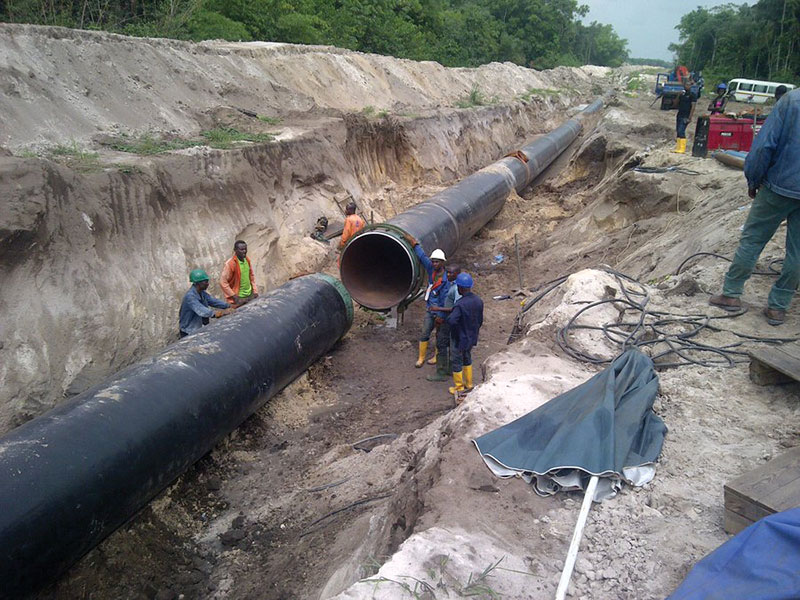Regional Pact Puts Trans-Saharan Gas Pipeline Back on Track
HOUSTON (P&GJ) — Niger, Algeria and Nigeria have signed an agreement that will see development resume on the multibillion-dollar Trans-Saharan gas pipeline project, the African Energy Chamber announced Thursday.
The three-nation pact, which was finalized during the Economic Communities of West African States (ECOWAS) Mining and Petroleum Forum Wednesday in Niamey, Niger, was signed by that country’s minister of Petroleum, Energy and Renewable Energies, as well as by Algeria’s minister of Energy and Mines and Nigeria’s minister of state for Petroleum Resources.
With a length of 2,565 miles (4,128 km), the $13 billion pipeline will link Warri in Nigeria to Hassi R'Mel in Algeria, passing through Niger. Upon completion, the pipeline will carry 30 Bcm of natural gas yearly to European markets via Algeria’s strategic Mediterranean coast, as well as supply inland stations along its route.
“This project will be transformational for all the countries involved and we in Nigeria are committed wholly to making it a success," said Minister H.E. Mahamane Sani Mahamadou of Niger. "It will bring jobs and much needed revenue from gas monetization.”
The Trans-Saharan Gas Pipeline would enable Europe to tap directly into the three country's significant natural gas reserves, helping it diversify its supply sources, while creating critical sources of revenue for African gas markets.
Much of the estimated $13 billion pipeline cost will be spent in Niger, acting as a much-needed boost for the already growing energy sector and wider economy. It would also enable Niger to monetize its own gas reserves, estimated at 34 Bcm, with recoverable reserves of 24 billion cubic meters.
H.E. Minister Mahamadou’s plans include the use of domestic gas to develop a petrochemical industry, with the production of byproducts such as ammonia, urea and fertilizers, which would also benefit his country's agricultural sector.
“Restarting this project, sends a clear message to investors, and important strategic partners in Europe and Africa, that things are changing in Africa," said N.J. Ayuk, executive chair of the African Energy Chamber. "We will be pushing to have some key milestones and agreements signed and announced during African Energy Week in October in Cape Town.”
Niger already has experience in driving significant energy infrastructure projects, including the $2.2 billion Niger-Benin crude oil pipeline currently under construction from the Agadem Basin in Niger to the Cotonou Terminal offshore Benin. Upon its expected completion in 2023, this 1,243-mile (2,000-km) pipeline will support production increases to more than 120,000 from a current 20,000 bpd.
Niger-Benin is projected to unlock an additional $3 billion in field development investments by Chinese major CNPC. The pipeline is also expected to boost exploration in Niger, as producers take advantage of its low $15-per-barrel exploration and development costs.
Niger, one of Africa's most stable democracies, has a goal of becoming a major hub for hydrocarbons, petrochemicals and associated products in West Africa. Its planned energy infrastructure expansions would help position it as a key bridge between resource-rich, sub-Saharan Africa and the Maghrebian and European markets.
Related News
Related News

- Keystone Oil Pipeline Resumes Operations After Temporary Shutdown
- Freeport LNG Plant Runs Near Zero Consumption for Fifth Day
- Biden Administration Buys Oil for Emergency Reserve Above Target Price
- Mexico Seizes Air Liquide's Hydrogen Plant at Pemex Refinery
- Enbridge to Invest $500 Million in Pipeline Assets, Including Expansion of 850-Mile Gray Oak Pipeline





Comments